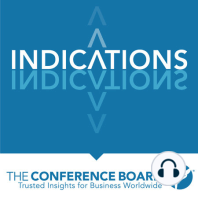11 min listen
Indications 2.8: Debt, Denial, and Modern Monetary Theory
FromIndications
ratings:
Length:
19 minutes
Released:
Apr 1, 2019
Format:
Podcast episode
Description
According to the IMF, total debt worldwide—including government, consumer, financial, and non-financial sources—now amounts to $185 trillion, or some 2.25 times the size of global GDP. A generation ago, the ratio stood at just 1:1. But despite this rapid rise in leverage, the traditional dangers of government debt in particular—soaring inflation and interest rates—have yet to materialize. Should the evidence of recent decades force experts to reconsider their basic monetary and fiscal assumptions? Have policymakers and the private sector alike reached a new equilibrium of debt tolerance? Or are the established laws of economic gravity still intact—and ignored at our peril? Chief Economist Bart van Ark surveys the evidence with the help of an expert panel. Indications 2.8 Resources Window On the World’s Debt (full webcast on-demand) Window On Latin America (free registration for next webcast on 4/24)
Released:
Apr 1, 2019
Format:
Podcast episode
Titles in the series (99)
Consumer Confidence Goes Up in Europe in Quarter 2: In this podcast, Ilaria Maselli (Senior Economist) and Derek Servais (senior digital media and IT specialist) deep dive into the quarter 2 results for Europe of The by The Conference Board and Nielsen. The new data show that confidence... by Indications
